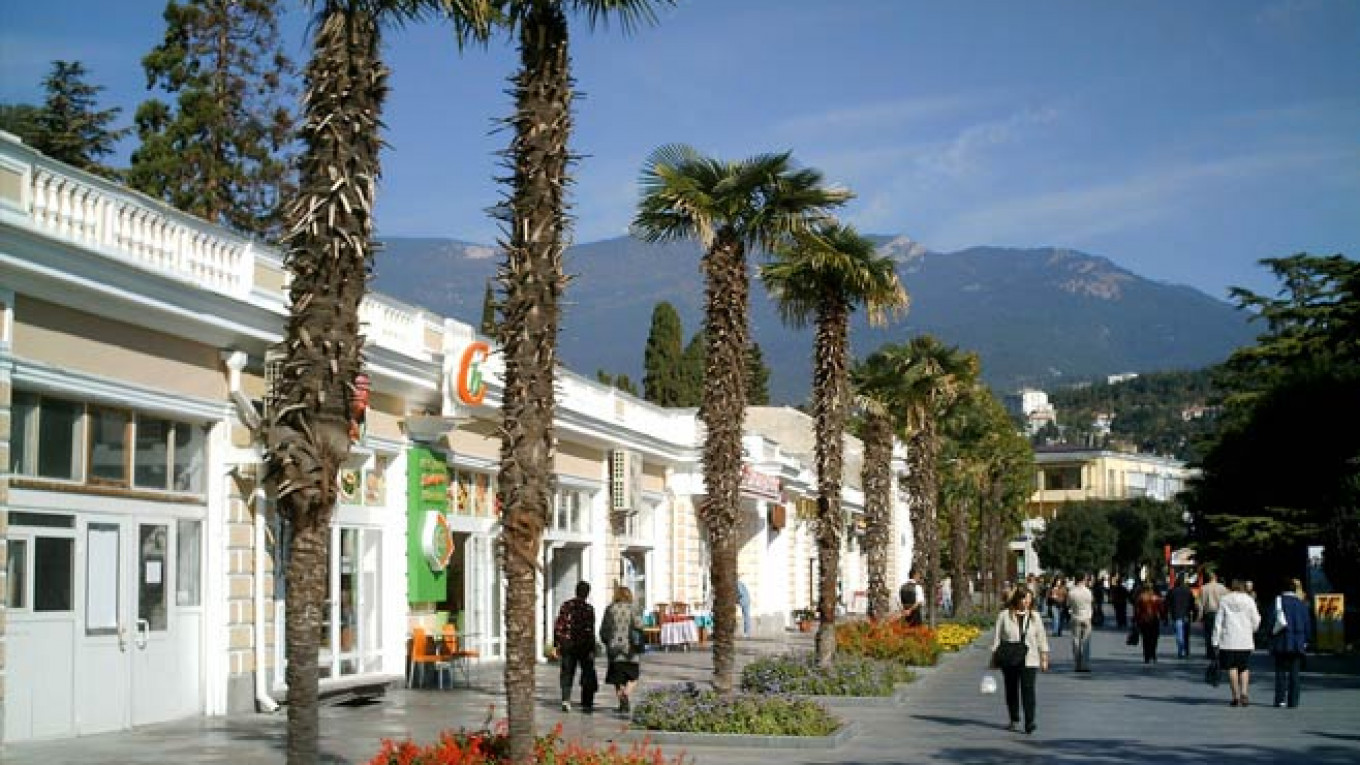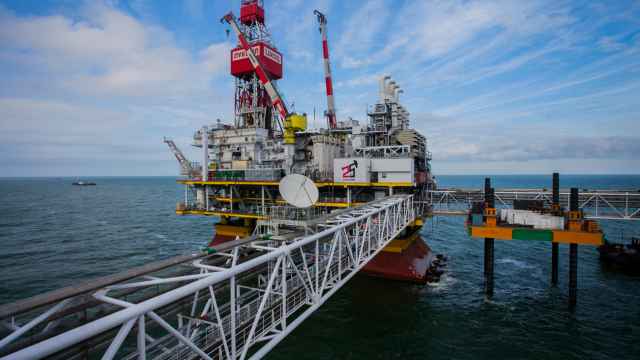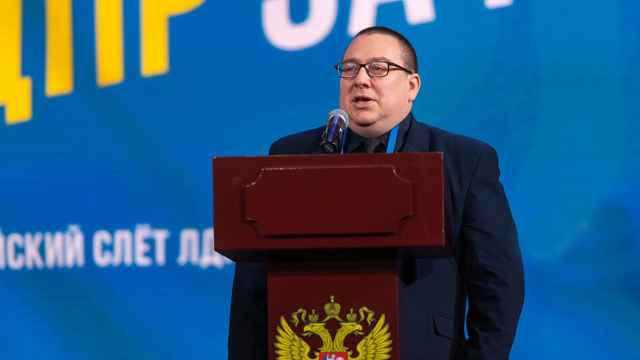The Russian government will pump 7 billion rubles ($196 million) into subsidizing transport links and infrastructure between Crimea and the Russian mainland, in an attempt to save a tourist season that is likely to be decimated by the ongoing crisis in Ukraine.
Federal budget funds will go toward overhauling existing transportation hubs such as the Simferopol airport in Crimea's capital and the ferry terminal in the Russian Black Sea port city of Kerch, as well as subsidizing ferry and air fares, according to a government order signed by Prime Minister Dmitry Medvedev and posted on the government's website Tuesday. Part of the cash will be invested in the region's roads and railways, and public transport will receive subsidies during the holiday season.
"The order will enable the improvement of transportation in Crimea, of particular importance in the tourist season," the document said.
The bulk of tourists traveling to Crimea in previous years have been Ukrainians. But since Russia annexed the peninsula from Ukraine in March, checkpoints have appeared on a new border between the hostile states.
100,000 families depend on the tourism industry in Crimea, according to the Ukrainian Ministry of Resorts and Tourism. If Russia is to avoid beggaring them, it will have to find ways to replace Ukrainian tourists with Russian ones. However, the most traveled route to Crimea from Russia is overland via southeast Ukraine, which is rapidly turning into a politicized war zone, and creating road and rail links that bypass Ukraine will take years.
Recognizing the problem, the federal government will funnel some 3 billion rubles ($84 million) into improving road infrastructure. State rail operator Russian Railways will get 1 billion rubles ($28 million) to refinance Crimean railways. Nearly 680 million rubles ($19 million) will be channeled to the federal air transport agency Rosaviatsia, for subsidizing flights to and from Simferopol.
More money will follow — by 2020 the government plans to spend from 500 billion to 900 billion rubles ($14 billion to $25 billion) on Crimea's infrastructure, Minister for Crimean Affairs Oleg Savelyev said Wednesday, RIA Novosti reported. These funds will be used to develop the peninsula's energy and water supply infrastructure, as well as the transportation system.
According to data from the Russian tourism watchdog, Rostourism, nearly 6 million tourists visited Crimea last year, of which 65 percent were Ukrainians and 25 percent, Russians. The 2014 season will be different, warned Irina Schegolkova, a spokesperson for Rostourism.
"This year, the Crimean government plans to welcome about 3 million people, the majority of them Russians," she said, adding that in previous years most Russians either drove to Crimea in their cars or traveled by rail. For Russians, that means a detour through potentially hostile territory, which most will be unwilling to risk, she added: "The only alternatives are developing direct flights to Crimea or ferry connections."
State-owned Russian Railways is trying to promote alternative routes. It has started selling combined package tickets, with which buyers would arrive by rail in the Russian seaside resort of Anapa, be bussed to the nearest port and then travel by ferry to Crimea.
But if subsidies do prompt increased demand, it is not clear that infrastructure capacity will be able to keep up. Aviation infrastructure in Crimea needs to be prioritized, said Irina Schegolkova — the region's main airport in Simferopol is too small to cope with the necessary passenger flows.
Sea links face the same problem. “It is crucial to make the ferry line work better if it could become the main way for Russians to get to Crimea,” said Sergei Romashkin, the CEO of Moscow-based travel agency Delphin. Despite ferries running every 30 minutes during the day, the route is in high demand and always full.
Contact the author at d.kulchitskaya@imedia.ru
A Message from The Moscow Times:
Dear readers,
We are facing unprecedented challenges. Russia's Prosecutor General's Office has designated The Moscow Times as an "undesirable" organization, criminalizing our work and putting our staff at risk of prosecution. This follows our earlier unjust labeling as a "foreign agent."
These actions are direct attempts to silence independent journalism in Russia. The authorities claim our work "discredits the decisions of the Russian leadership." We see things differently: we strive to provide accurate, unbiased reporting on Russia.
We, the journalists of The Moscow Times, refuse to be silenced. But to continue our work, we need your help.
Your support, no matter how small, makes a world of difference. If you can, please support us monthly starting from just $2. It's quick to set up, and every contribution makes a significant impact.
By supporting The Moscow Times, you're defending open, independent journalism in the face of repression. Thank you for standing with us.
Remind me later.






